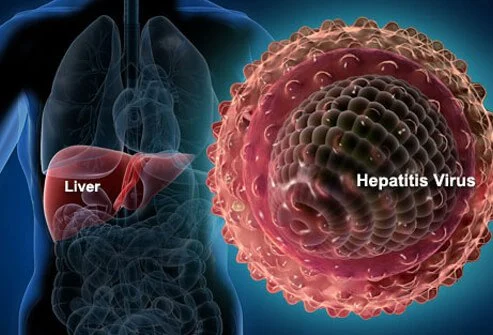
An expert in medicine and gastroenterology, Prof. Jesse Otegbayo, has called upon the Federal Government to address urgently the increasing threat posed by Hepatitis B (HBV) and its link to liver cancer.
Otegbayo, also affiliated with the liver unit at the Faculty of Clinical Sciences, College of Medicine, University of Ibadan, shared insights from a study conducted among unpaid blood donors at the University College Hospital, Ibadan, in an interview with Science Nigeria in Abuja on Friday.
The study identified scarification and indiscriminate injections as common risk factors for HBV transmission, with 54 per cent of subjects lacking identifiable risk factors.
“While vertical transmission from mother to child during birth and horizontal transmission through various means, including sexual contact and unscreened blood transfusions, pose significant risks, vaccination remains a crucial tool in reducing the disease burden,” he emphasised.
He highlighted the significant contributions of pioneers like Louis Pasteur and Baruch Blumberg in developing HBV vaccines, which have led to substantial progress in preventing HBV infection and subsequent liver cancer.
Despite the availability of HBV vaccines and their inclusion in national immunisation programmes, he expressed concern over consistently low implementation rates, with only 41 per cent of newborns in Nigeria receiving the vaccine.
“Furthermore, vaccination rates among healthcare workers, who are at higher risk of HBV infection, remain inadequate,” he stressed.
Acknowledging initiatives such as the University of Ibadan’s Students Union government’s efforts to screen and immunise students against HBV, he emphasised the need for more comprehensive strategies to address the root causes of HBV transmission and liver cancer.
Referring to studies from countries like Gambia and Taiwan, which have shown the effectiveness of HBV immunisation in reducing infection rates and liver cancer cases, he advocated for multifaceted approaches outlined in the African Organisation for Research and Training in Cancer (AORTIC) Cancer Plan for the African Continent.
“These strategies involve preventing viral hepatitis through vaccination and awareness campaigns, promoting liver health through screening and early detection of HBV and dispelling myths and misconceptions about cancer to enhance awareness and uptake of preventive measures,” he stated.
Otegbayo stressed that coordinated efforts, supported by improved healthcare infrastructure, universal vaccination programmes and population control measures, offer a way to combat the HBV epidemic and reduce the burden of liver cancer in Nigeria and beyond.
Calling for immediate action to prevent further loss of lives to this preventable disease, he reiterated the critical importance of timely intervention and comprehensive preventive measures.

